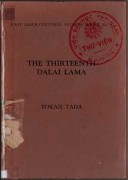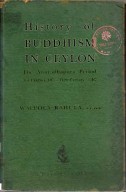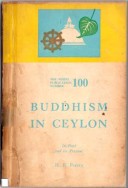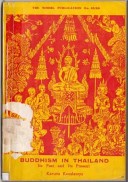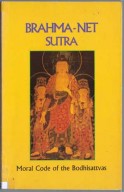Tìm Sách
Sách tiếng Anh-English >> A History Of Pali Literature (Book1)
Thông tin tra cứu
- Tên sách : A History Of Pali Literature (Book1)
- Tác giả : Bimala Churn Law, Ph.D, M.A, B.I
- Dịch giả :
- Ngôn ngữ : Anh
- Số trang : 336
- Nhà xuất bản : Bhartiya Publishing House-India
- Năm xuất bản : 1983
- Phân loại : Sách tiếng Anh-English
- MCB : 12100000011591
- OPAC :
- Tóm tắt :
INTRODUCTION
I. The Origin and home of Pali.—The term Palibhasa or Pali language is a comparatively modern coinage. Whether the credit of this misleading coinage is due to the European Orientalists or to the latter-day Buddhist theras of Ceylon, Burma, and Siam, is still a matter of dispute. It is certain, however, that even up to the 6th or 7th century A.D., the term Pali does not appear to have gained currency as a nomenclature for any kind of language. Even if we look into the Culavamsa forming a later supplement to the Mahavamsa we find that the term Pali is used in it clearly in the sense of original Buddhist texts, the texts of the canon, as distinguished from the commentaries:
‘ Palimattam idhamtam, natthi atthakatha idha’—only the Pali has been brought over here from Ceylon but not the commentaries. In the commentaries themselves there are several passages in which the term Pali has been employed precisely in the sense of the original authoritative text of the canon. In the Visuddhimagga, for instance, we have at p. 107 ‘ Idam sabbakarena neva Paliyam, na atthakathayam agatam, kevalam acariyamatanu sarena vuttam, tasma na sarato paccetabbam and also at page 450 of this work we read ‘ Imam tava paliyam : atthakathayam pana : annani pirupani aharitva’. A similar distinction between the Pali and the atthakatha on the one hand and between the atthakatha and the acariyamata on the other is brought out by Buddhaghosa also in his Puggala-Pannatti commentary in the use of such expressions as (1) Pàlimuttakena pana atthakathànayena, p. 171 ; (2) atthakathàmuttakena pana acariyanayena, p. 173. As a matter of fact, the earliest issue of the term Pâli can be traced in the commentaries of Buddhaghosa and not in any earlier Buddhist writings. It is again in the commentaries that the term Pali came to be regarded as a synonym for Buddhavacana, Tripitaka, tanti, and pariyatti. The transition from Pali the text to Pali the language came about sooner or later by a natural process. Although the conscious attempt on the part of the commentators was to keep the term Pali dissociated from its linguistic implication, they felt constrained to commit themselves to such an expression as tantibhàsa in order to distinguish the language of the Pali or the text of the canon from Sihalabhasà or the Sinhalese language. The language of the Pali itself was characterised by them as Magadhinirutti or the Màgadhi idiom. In tantibhàsa they attained a coinage approaching Pàlibhàsà or Pali language. And the other term Màgadhi or Magadhinirutti was held out by them as a word of praise, claiming thereby as they actually did, that the Màgadhi idiom of the Pali texts was the mulabhasà or the primary speech of all men.
CONTENTS
FOREWORD
PREFACE
INTRODUCTION
CHAPTER I :
CHRONOLOGY OF THE PALI CANON
CHAPTER II :
CANONICAL PALI LITERATURE
SECTION I — VINAYA PITAKA
SECTION II — SUTTA PITAKA
- DIGHA NIKAYA
- MAJJHIMA NIKAYA
- SAMYUTTA NIKAYA
- ANGUTTARA NIKAYA
- KHUDDAKA NIKAYA
SECTION III — ABHIDHAMMA PITAKA
CHAPTER III :
PALI COUNTERPARTS OF THE SEVEN ABHIDHAMMA TREATISES OF THE SARVASTIVADA SCHOOL
 Facebook
Facebook
 Google
Google
 Google+
Google+


